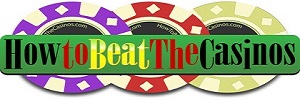High-Stakes Poker: Lessons from the Pros
When people think of high-stakes gambling, few images are as iconic—or as intimidating—as the high-roller poker table. The tension, the stares, the chips stacked like small fortunes. From private rooms in Vegas to globally televised events like the World Series of Poker, high-stakes poker represents the pinnacle of strategy, courage, and risk.
But while most of us won’t sit down at a $100,000 buy-in table anytime soon, there’s still a lot we can learn from the professionals who do. These players aren’t just gamblers—they’re students of psychology, masters of bankroll discipline, and champions of emotional control. And even if you play casual games with friends or online at low stakes, applying a few of their lessons can dramatically improve your performance—and your enjoyment.
Here’s what the pros want you to know.
Lesson 1: Bankroll Management Is Everything
Top-tier poker players treat their bankroll like a business. They know exactly how much they can afford to risk, and they never let ego or impulse dictate how much they bring to the table.
In fact, most professionals follow strict rules: never sit at a table where the buy-in exceeds 5% of your total bankroll. For high-stakes players, this often means sitting on a six- or seven-figure bankroll just to feel comfortable at the nosebleeds.
What this means for you: Set limits based on your own financial situation. Decide before you play what your loss limit is—and stick to it. Never chase losses by jumping to higher-stakes games.
Lesson 2: Master the Mental Game
At high-stakes tables, skill levels are evenly matched. What often separates winners from losers isn’t who knows the math—it’s who controls their emotions.
Tilt is the poker term for playing emotionally after a tough hand. One bad beat can lead to a cascade of poor decisions if you’re not mentally disciplined.
Professional players train to stay calm, even when frustrated. They take breaks, meditate, review hands objectively, and sometimes walk away for the day—knowing that preserving mental clarity is more valuable than chasing immediate revenge.
What this means for you: Take your emotional temperature before every session. Are you playing for fun—or trying to “fix” a bad day? If you’re angry, tired, or distracted, it’s better not to play at all.
Lesson 3: Patience Wins Pots
High-stakes poker isn’t about constant action. In fact, pros often fold far more hands than they play. They know that forcing the action—just to “stay in it”—is a losing proposition.
Poker is a waiting game. You’re waiting for the right hand, the right position, the right opportunity to exploit your opponent’s weakness. The best players fold 70-80% of the time, especially out of position.
What this means for you: Don’t feel pressured to play every hand. Fold more often. Use that time to observe your opponents. Poker is as much about what others are doing as what you’re holding.
Lesson 4: Reads and Ranges Matter More Than Luck
Amateur players often fixate on luck. “I got rivered!” “He hit a two-outer!” Yes, luck plays a role—but not nearly as much as most people think. Professionals focus instead on ranges—what types of hands their opponents could logically have—and how their own hand compares.
Rather than putting someone on one exact hand (which is nearly impossible), they assess the likelihood of various hands based on betting behavior, timing, and table dynamics. It’s a game of probabilities, not hunches.
What this means for you: Stop asking, “Does he have aces?” and start asking, “What range of hands could he have, and how does my hand perform against that range?”
Lesson 5: Table Image Is a Weapon
How others perceive you at the table affects how they play against you. Aggressive? Tight? Reckless? Calculated? Pros shape their image deliberately—and then use it to their advantage.
Acting loose and then tightening up can earn you big pots when others underestimate you. Conversely, if people think you only play strong hands, you can bluff more effectively.
What this means for you: Pay attention to how your opponents see you. Adjust your image depending on who you’re playing and how they’re responding. Poker is performance, too.
Lesson 6: Study Is Never Over
Every pro reviews hands. Watches others. Reads books. Uses software. They treat poker like a science, constantly evolving as the game does. The moment you think you know it all, you’re toast.
With solvers, hand replayers, and coaching platforms now widely available, there’s no excuse not to keep learning. Even casual players can benefit hugely from reviewing just 1-2 hands per session.
What this means for you: Record your hands, review your decisions, and ask yourself not just what happened—but why. Learn from both your wins and losses.
Lesson 7: Respect the Game (and Yourself)
High-stakes poker isn’t just about ego or dominance. At the top levels, players respect each other—even while trying to beat each other. Trash talk is rare. Discipline is everything.
Pros know that playing with integrity means more than the cards—it’s about managing your life, your habits, and your mindset. They’re professional in the truest sense.
What this means for you: Set rules. Respect your limits. Know why you’re playing. Whether it’s a $1 sit-n-go or a $10,000 main event, treat the game—and yourself—with respect.
Responsible Gambling in Poker
Poker, unlike many other casino games, involves skill. But it still carries the same risks if you’re not careful. The line between strategic play and emotional gambling can get blurry, especially after long hours or hard losses.
Here’s how to keep your poker experience healthy:
- Set a clear bankroll and never play with money meant for rent, food, or essentials.
- Take frequent breaks. Stand up. Breathe. Hydrate.
- Know when you’re no longer having fun—and step away.
- Avoid playing when impaired or emotionally unstable.
- Remember: poker is a game, not a paycheck.
Final Thoughts
High-stakes poker is thrilling, dramatic, and often misunderstood. But the pros who succeed at those tables aren’t reckless daredevils. They’re patient, thoughtful, and emotionally grounded. They study harder than most, fold more than you’d expect, and never let ego get in the way of smart decisions.
You don’t have to be a pro to learn from them. Whether you’re playing for pennies or prestige, the core principles remain the same: play smart, play calm, and always play with purpose.
And remember, the best poker player isn’t the one who wins the most pots—it’s the one who knows when to fold, when to fight, and when to walk away.

